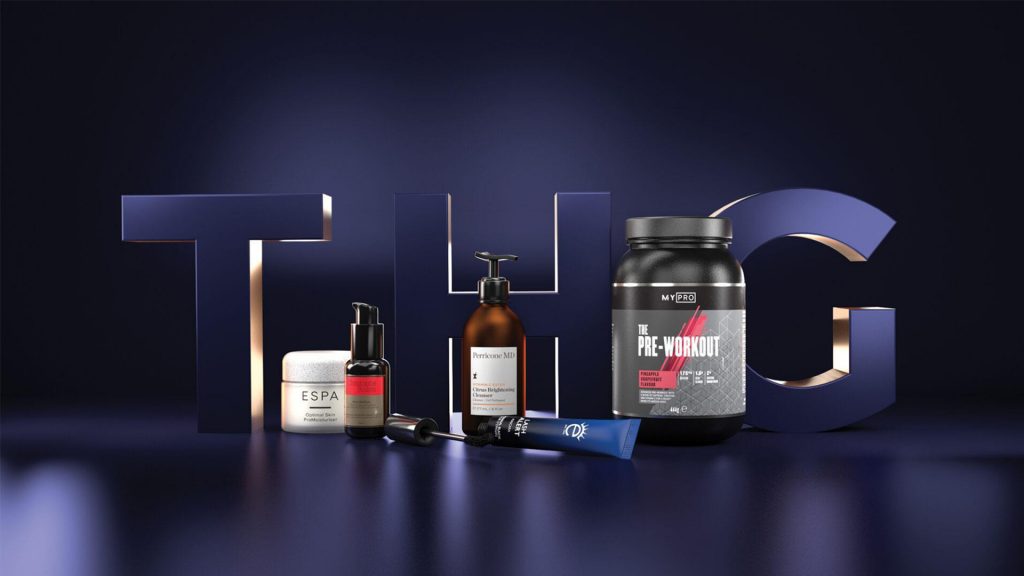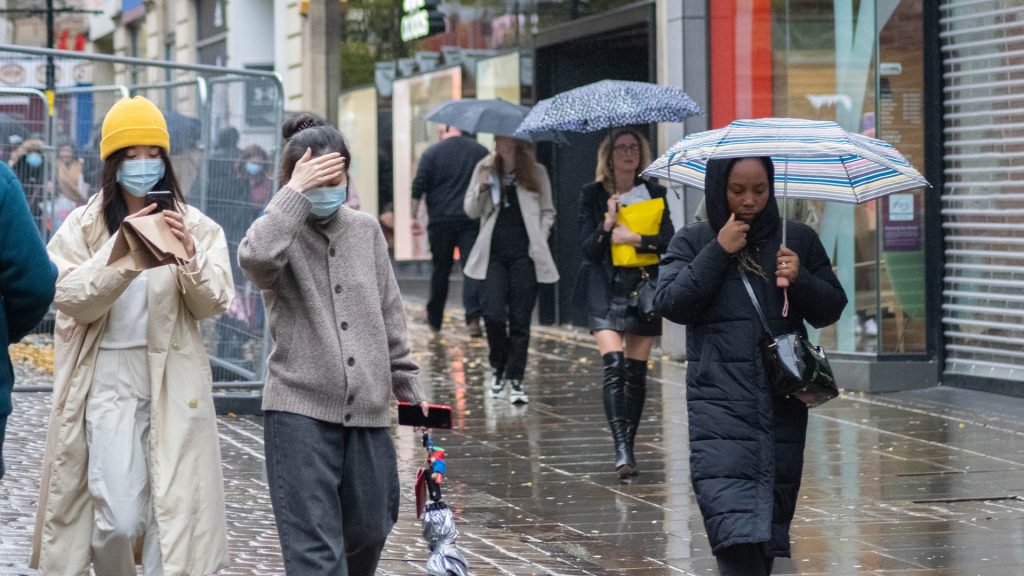Highlights from TheIndustry.beauty LIVE: The Omnichannel Opportunity
Beauty is booming and growth predictions remain healthy for the coming years. To ensure beauty brands can capitalise on this opportunity, they should think big and think Omni.
Gathering at The Hoxton Hotel in Holborn, a crowd of beauty industry professionals from Aesop, Clarins, Coty, Diptyque, Estee Lauder Companies, Harrods, L’Occitane Group, Paula’s Choice, Ren Clean Skincare, THG, Trinny London, Unilever, and many more spent the day learning about the channels and markets that will help broaden their brand’s horizons, with sessions offering practical and actionable advice on how to execute their omnichannel plan.
Hosted in partnership with Bleckmann and sponsored by Revieve and SoPost, business leaders and panellists from beauty brands and retailers including Shiseido Company, Lush, Elemis, The Inkey List, No7 Beauty Company, and more shared their insights on a number of opportunities within omnichannel, from driving growth through personalised AI and AR to creating an elevated and locally relevant retail experience, building a strong logistics platform to power omnichannel and cross-border growth, and more.
The sessions

Keynote interview - Charles de Montalivet, Shiseido Group
As a flurry of awaiting beauty experts clamoured into the Hoxton Holborn's private quarters with coffees and pastries in hand, Charles de Montalivet, Country Manager, UK & Ireland at Shiseido Group, started the day speaking about his approach to omnichannel and plans for expansion in the UK.
Montalivet has been at the Shiseido Group – owners of Shiseido, Clé de Peau, NARS, Drunk Elephant and more – for five years. The self-proclaimed beauty veteran explained that the UK is essential for the company at the moment as the UK is the fourth biggest market worldwide for beauty. Omnichannel is a key ingredient in perfecting growth. For example, one way in which Shiseido plans to partake in omnichannel practices is to use its retail staff from stores to advise online customers. This personal interaction is a great way to engage and retain customers. So, linking stores and online is important.
"In retail, everyone’s in search of an experience that is memorable. What’s that special moment today? Gifting and personalisation. This makes the customers feel special. For example, we plan to sell exclusive products in new stores. However, this isn’t in every brand’s DNA. So, how do you still apply that personalisation in a way that fits with your brand? In retail, there’s a lot of room for growth," Montalivet said.

Building a strong logistics platform to power omnichannel and cross-border growth
From both the distributor side and the brand side, Matthias Vandecasteele, Sales Director at Bleckmann, Lewe Goldmann, Supply Chain & Operations Director at Cloud Nine, and Daniella Chavarria Banks, Consultant for Logistics, International Customs & Trade, Supply Chain at Olaplex, came together to discuss how to build a strong logistics platform to power omnichannel and cross-border growth. Bleckmann’s partnerships with Olaplex and Cloud Nine to manage their stock and distribution set them on the path to becoming fully omnichannel. These teachings can be applied to any beauty brand looking to scale.
The panel discussed how to take a brand from multichannel to omnichannel as well as the give-and-take between DTC and BTC retail. Olaplex, for example, is focusing on growing its DTC offer, but both channels are important and hold value.
"We are multichannel right now. We have a strategic plan to be omnichannel. One of the reasons is that we’ve gone from retailers to becoming completely DTC and are now going back to work with our retail partners. This is the glue to connecting all channels," said Goldmann.
"To manage stock, you can set up different warehouses in different regions. We dedicate different SKUS to different markets. It’s not only about single pool inventory – it’s the ability to balance it out. If there’s a large demand or order, we need to have the ability to be flexible. You need a partner who can scale", added Vandecasteele.

Driving growth through personalised AI and AR
The introduction of artificial intelligence and augmented reality to the beauty industry has modernised the capabilities of beauty businesses and the experiences they can provide consumers. From skincare analysis to makeup try-ons, AI and AR-powered platforms can offer a personalised and unique retail experience for shoppers, both in-store and online.
Revieve is a technology company delivering these hyper-personalised experiences. In this session, Miikka Mäkiö, SVP EMEA at Revieve, was joined by Kiran Sandhu, Global Head of Beauty Incubator at No7 Beauty Company, to discuss how growth can be driven by AI and AR.
During this time, Sandhu revealed the success of its partnership with Revieve following the launch of its skincare analysis and makeup try-on platforms. "It's so important to make these experiences as seamless, frictionless, and easy to use as possible while maintaining accuracy and credibility," she said.
To achieve this, Revieve works with businesses to create an experience that is personal to each brand and its customers. "There's a lot of work that goes on behind the scenes to ensure each experience is high-quality, credible, and personal to the brand and its products," Mäkiö shared. The session also highlighted the added benefits of the data and customer insights these services provide.

Driving growth through digital sampling
Getting products into people’s hands is fundamental to the beauty industry and has been the case since sales associates began handing out samples in department stores. However, sampling can be expensive, competitive, and flawed with a non-targeted and blanket approach from businesses.
During an insightful session with Bianca Chambers, Head of Brand Partnerships at sampling experts SoPost, it was revealed that beauty brands should elevate their sampling strategy to become more inventive, easier, and engaging to capture the attention of consumers and drive sales.
As part of its service, SoPost offers a suite of intelligent tools to process, filter and confirm orders to maximise the impact of sampling campaigns. "Whether it's shipping address verification, advanced order deduplication, or intelligent order filtering, we can help brands improve their spend and return on investment as it means they wouldn't be sending wasted products," Chambers revealed during the session.

Creating an elevated and locally relevant retail experience
Kicking off the afternoon’s sessions, Simon Ford of Malin + Goetz and Kasey Swithenbank of Lush spoke about their retail strategies. In this session, the duo discussed choosing shop locations, size, staff and target demographics.
Lush is completely DTC and also manufactured in-house at factories all over the world. Whereas, Malin + Goetz has a list of retail partners, including Space NK, Sephora, and more. However, both are leaders in wellness and beauty, continually expanding whether through flagships or pop-ups in local communities and cities across the UK.
"When choosing a location for a new store, there’s an element of heart and mind. You must feel it in your gut, but ultimately, it's about the data. We look at heat maps and test foot traffic through mobile phone tracking", explained Simon Ford.
"We originated in Poole in a small store, so brick-and-mortar will always be at the forefront of our brand. However, digital and store go hand in hand," added Kasey Swithenbank.

Laying the foundations for a strong international brand
Both Elemis and The Inkey List have a strong international presence. As British brands, the two businesses made the perfect panellists for the fourth session of the day, with Susan Harvey, General Manager for Elemis UK, and Suzanne Coulton, COO of The Inkey List, discussing the international expansion of the two brands.
The Inkey List started its international expansion with Sephora in North America. Today, the brand is sold across 49 countries through the global beauty giant's network. "One of key things for global expansion is learning how to get it wrong, being ok with that, and reacting fast," revealed Coulton.
Elemis has also significantly evolved its presence in the US and Asia over the last few years. To increase awareness internationally, the brand has invested in these regions. "We've put a lot of focus on growing our US and Asia operations but are now turning our focus back on the UK," said Harvey, while excitedly referencing the upcoming opening of its first standalone store in London.

Leveraging community to create and grow a brand
For the final session of the day, Jasmine Wicks-Stephens, the Founder of Faace, and Holly Brooke, the Commercial Director of Skin Rocks by Caroline Hirons, discussed the importance of community when creating and growing a beauty brand.
As for Caroline Hirons, the entire brand is based on the founder’s community of skincare lovers. Everything Hirons does is community driven. "She will never make something that they don’t want," admitted Brooke. Meanwhile, Faace was built upon a community of experts and specialists, such as journalists, skincare gurus and dermatologists.
"We developed with the press in mind, but in terms of that resonating with the customer on the streets, their wants are different. Consumers believe they need a multi-step regime, so we’re telling them something different and that's a challenge for us and making the brand commercially viable," said Jasmine Wicks-Stephens.
"Your community is your community, but your customers are very different and we learned this the hard way. This was a mistake that we’re still paying for it a year and a half after launch. We designed the brand for the community, but without engaging the customer," added Brooke.
To sponsor one of our events or if you would like to ask about speaking opportunities, please email partnerships@theindustry.beauty.
Sign up to TheIndustry.beauty's daily newsletter to be the first to hear about future events.






